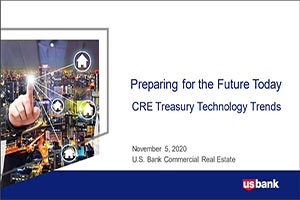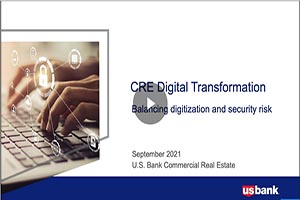
Crack the Swift code for sending international wires

Year-end financial checklist

Putting home ownership within reach for a diverse workforce

Leveraging the ASC-842 rule changes in equipment lease accounting

Administrator accountability: 5 questions to evaluate outsourcing risks

ABL mythbusters: The truth about asset-based lending

Finance or operating lease? Deciphering the legalese of equipment finance

Buying or leasing? Questions to ask before signing a contract

High-yield bond issuance: 5 traits lawyers should look for in a service provider

Easier onboarding: What to look for in an administrator

3 tips to maintain flexibility in supply chain management

Insource or outsource? 10 considerations

10 ways a global custodian can support your growth

4 questions you should ask about your custodian

Refining your search for an insurance custodian

Service provider due diligence and selection best practices

Preparing for your custodian conversion

Risk management strategies for foreign exchange hedging

Webinar: CRE technology trends

Complying with changes in fund regulations

Business risk management for owners of small companies

Evaluating interest rate risk creating risk management strategy

Webinar: CSM corporation re-thinks AP

Webinar: AP automation for commercial real estate

Addressing financial uncertainty in international business

5 winning strategies for managing liquidity in volatile times

The future of financial leadership: More strategy, fewer spreadsheets

Employee benefit plan management: trustee vs. custodian

Choosing your M&A escrow partner

High-cost housing and down payment options in relocation

Why retail merchandise returns will be a differentiator in 2022

Crypto + Relo: Mobility industry impacts

For today's relocating home buyers, time and money are everything

Webinar: CRE Digital Transformation – Balancing Digitization with cybersecurity risk

Empowering team members

10 tips on how to run a successful family business

Streamline operations with all-in-one small business financial support

Business tips and advice for Black entrepreneurs

How to test new business ideas

How to get started creating your business plan

The role of ethics in the hiring process

8 ways to increase employee engagement

How to reward employees and teams who perform well

How to hire employees: Employee referral vs. external hiring

Give a prepaid rewards card for employee recognition

5 steps for creating an employee recognition program

Small business growth: 6 strategies for scaling your business

Healthcare marketing: How to promote your medical practice

Checklist: Increase lead generation with website optimization

Omnichannel retail: 4 best practices for navigating the new normal

Is your restaurant Google-friendly?

What you should know about licensing agreements

How to expand your business: Does a new location make sense?

3 simple brand awareness tips for your business

How a small business owner is making the workplace work for women

The growing importance of a strong corporate culture

Common small business banking questions, answered

3 signs it’s time for your business to switch banks

Unexpected expenses: 5 small business costs to know and how to finance them

Business credit card 101

Meet your business credit card support team

How to apply for a business credit card

How jumbo loans can help home buyers and your builder business

Break free from cash flow management constraints

5 tips for managing your business cash flow

Improve online presence your business

How Shampoo’ed is transforming hair and inspiring entrepreneurs

The San Francisco bridal shop that’s been making memories for 30 years

How Al’s Breakfast is bringing people together

In a digital world, Liberty Puzzles embraces true connection

Celebrity Cake Studio’s two decades of growth and success

How a travel clothing retailer is staying true to its brand values

How to build a content team

Use this one simple email marketing tip to increase your reach

How (and why) to get your business supplier diversity certification

Tips to overcome three common savings hurdles

Helpful tips for safe and smart charitable giving

Allowance basics for parents and kids

30-day adulting challenge: Financial wellness tasks to complete in a month

5 tips to use your credit card wisely and steer clear of debt

Travel for less: Smart (not cheap) ways to spend less on your next trip

Real world advice: How parents are teaching their kids about money

How to stop living paycheck to paycheck post-pay increase

Practical money tips we've learned from our dads

6 ways to spring clean your finances and save money year-round

How to cut mindless spending: real tips from real people

How to increase your savings

5 tips to use your credit card wisely and steer clear of debt

First-time homebuyer’s guide to getting a mortgage

Dear Money Mentor: When should I refinance a mortgage?

How to spot a credit repair scam

5 unique ways to take your credit card benefits further

Common questions about electric vehicles (EVs)

Car shopping: Buying versus leasing your next vehicle

How to choose the best car loan for you


